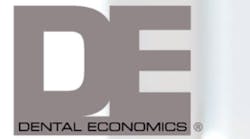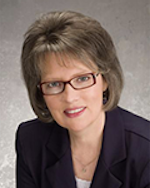Dr. Ed asks Dianne Watterson about paying the dental hygienists in his office for "phone time." They're responsible for their own schedules, and are paid on a commission basis. Should they have to come in during their time off?
Dear Dianne,
About two years ago, I changed the pay arrangement in my practice from a daily rate to commission pay based on production for my three hygienists. The reason I did this is because I got tired of paying them when they did not have patients. All three seem to be fine with the arrangement, and they are paid very well.
The problem is the schedule. I have informed them that I believe it is their responsibility to work on filling openings when they don’t have patients. After all, it is to their advantage to have patients in their chairs. One of the hygienists asked what she would be paid for “phone” work, and I told her that it’s just part of her job, and that there would be no extra pay. I suggested they be willing to come in occasionally and work a few hours on their days off. My suggestion was met with blank stares.
Am I being unreasonable? I want them to be busy, but I feel they should help fill their schedules.
- Dr. Ed
Dear Dr. Ed,
The Fair Labor Standards Act (FLSA) is a federal law that deals with minimum wage, overtime pay, recordkeeping, and youth employment standards. The law states that covered nonexempt workers are entitled to a minimum wage of not less than $7.25 per hour. This law requires that nonexempt employees (hygienists are nonexempt) be paid at least minimum wage for hours worked. “Hours worked ordinarily include all the time during which an employee is required to be on the employer’s premises, on duty, or at a prescribed workplace,” FLSA states.
Requiring your hygienists to perform work of any kind without any expectation of pay is illegal, no matter if it is calling patients, doing laundry, or a myriad of other duties in the office.
Scheduling is primarily a front office business desk function. In my opinion it is the most difficult job in a dental office. Just ask any scheduling coordinator who has worked diligently to engineer the perfect full day, only to have it fall apart with cancellations, thereby reducing productivity.
Your dilemma is one reason I do not favor straight commission-based pay for hygienists. Teamwork suffers, and there is no incentive for hygienists to do anything outside of chairside hygiene. Commissioned hygienists might become production “monsters” that trade quality work for quantity by stacking an unreasonable number of patients in the schedule. Hygienists who work on straight commission are not happy if their schedule is not full, and competition can become problematic in offices with multiple hygienists.
My preferred pay arrangement for hygienists is a base pay plus commission. Having a base amount protects hygienists in case the schedule falls apart, and it allows you as an employer to assign other duties when there is no patient in the chair. A commission would be paid when the hygienist exceeds his or her production goal.
The commission amount is generally 25% to 30% of the amount above the production goal. For example, if the daily goal is $1,000 and the hygienist produces $1,100, the excess is $100, and 30% of $100 is $30. For that day the hygienist’s compensation would be the base plus $30. Some hygienists find that receiving some of their income as commission provides them with an incentive to push a bit harder.
The bottom line in this discussion is that you cannot expect people to work with no expectation of pay. Working on recall is considered compensable time, so you are required by law to pay a rate that is at least minimum wage.
All the best,
DIANNE
Dianne Glasscoe Watterson, MBA, RDH, is a consultant, speaker, and author. She helps good practices become better through practical on-site consulting. Please visit Dianne’s website at wattersonspeaks.com. For consulting or speaking inquiries, contact Dianne at [email protected] or call her at (336) 472-3515.







